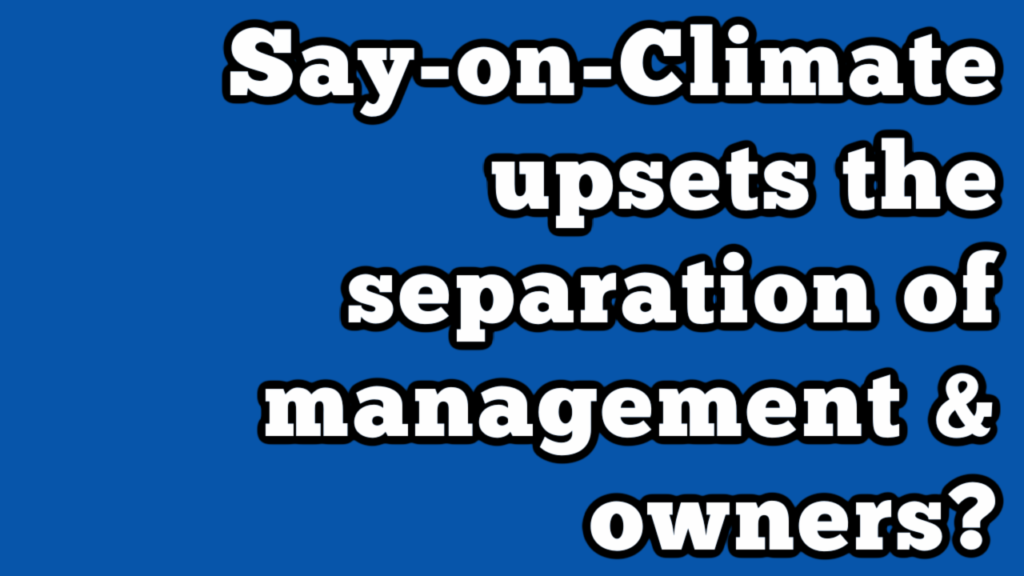Say-on-Climate upsets the separation of management & owners?

– Argues say-on-climate meddles with the separation of management and ownership.
– Also voters won’t have to justify the way they vote – and run the risk of vetting plans through a “one-size-fits-all” lens.
Gunster’s Bob Lamm wrote this blog with some misgivings about say-on-climate. Here’s an excerpt:
Why am I so negative on having a say on climate vote? Well, there are a few reasons. For one thing, I am not a fan of actions for which no one has accountability. The people who vote against – or, for that matter, for – a corporation’s climate plans or actions never have to justify why they voted the way they did, nor do they have any responsibility for the consequences of their vote. Another reason is that this kind of vote tends to result in a one-size-fits-all approach to how companies respond to climate change and other environmental challenges, with no appreciation for the highly technical and ever-changing nuances that exist in this space. Phrased otherwise, an up-or-down vote on such a complex matter strikes me as silly or worse.
But the most important reason for my opposition is that I believe that the separation of ownership and management is one of the great strengths of our corporate system. It is not perfect, and goodness knows that many companies have a less than wonderful record when it comes to environmental matters and many other things, too. But the separation of the two has created what is arguably the most effective economic engine in history.
I’m not an uber-capitalist, but where does it end? If shareholders have a say on climate, why not a say on capital allocation? How about a say on any M&A deal? The hiring of a new CEO or other member of the C-suite? Maybe we should simply give each shareholder an app that enables him or her to vote on a whole slew of matters that are now left to the board and management. We can then do away with boards of directors and maybe management too, and let the shareholders make all the decisions. Of course, that brings us back to the issue of accountability; my experience suggests that the advocates of say on climate really don’t want that. So what’s the point?
I am not suggesting that companies shouldn’t listen to their owners on climate change and many other issues. However, that’s precisely what I like about engagement – it’s a two-way discussion that enables companies and investors to listen to, and possibly learn from, each other. And that is not a theory – I’ve seen it happen over and over again.
